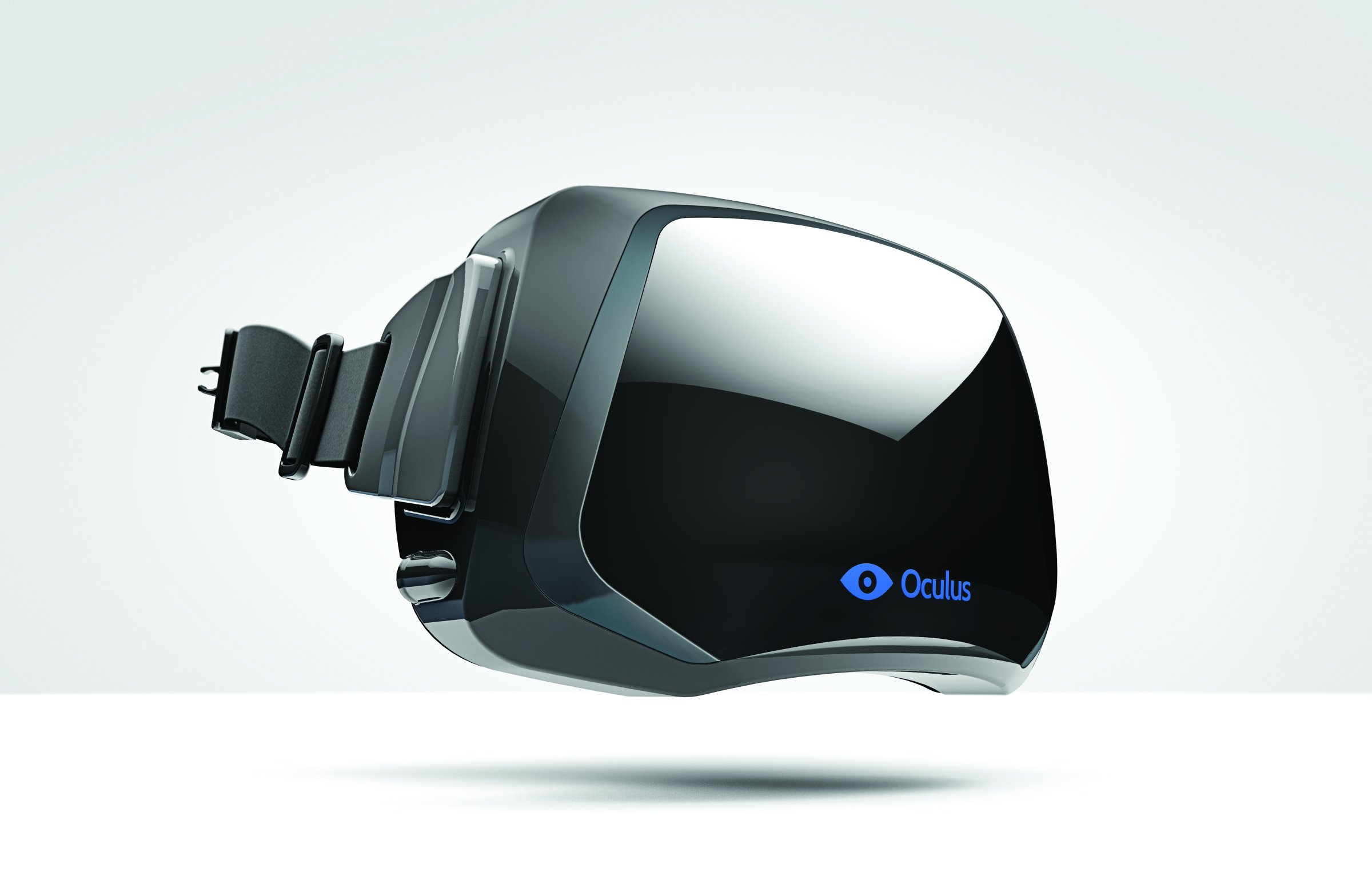
Most of what you’re reading right now about virtual reality is hype: more the wishful thinking of an industry looking for its next fix than an imminent phenomenon — an industry hoping to resurrect some very old ideas about reality manipulation and wish fulfillment scenarios whose time was always bound to come, but probably isn’t now.
The source of all this hype involves a pair of largish scuba-like goggles, dubbed Oculus Rift, that you clap on your face and tether to a computer. What it’s not: a sensation-gifting body mesh, nor a virtual retinal laser mounted to a pair of stylish lightweight glasses, nor the holy grail of holy grails that eventually makes any of this moot: a neural interface, probably using cell-sized nanobots, that’ll offer the option to engage any reality you like, anywhere you like, any time you like.
Getting the timeframes right for these things matters, and VR’s track record leaves a lot of be desired. If you’re not skeptical about Oculus’ technology or Facebook’s claims about what it means, you should be. And I’d recommend listening to former Microsoft guy and Xbox co-founder Ed Fries, who offered saner, more skeptical comments on Yabbly last week about the probability that VR is going to be a mass market force anytime soon.
Here’s Fries responding to a question about Facebook’s purchase signaling the advent of VR-as-mainstream:
Hardcore gamers love new technologies and experiences and are willing to do almost anything to get them so that’s a good market for Oculus. General users however are a different crowd. Given how little success the consumer electronics companies have had with 3D TVs with glasses, I am skeptical that general users are going to be strapping this thing onto their face any time soon.
Bingo. Oculus Rift is technology for enthusiasts, whether that’s playing games or having more visually reified social experiences all the way up to hypotheticals (use your imagination) involving virtual erotica. It involves relatively crude body-plus-plus technology that’s as cumbersome and restrictive as it promises to be liberating. It’s not a natural baby step forward from carrying a phone around in your pocket, it’s a radical shift toward wearing something unfashionable and subtractive (unlike augmented reality, Google Glass style, which treats VR as supplemental). It’s a somewhat more advanced version of a very old form of wraparound reality simulation, in other words, a clever trick that still employs a reductive sensory interface. It is, as TIME’s Lev Grossman poetically writes, the end of the frame, but I’d add not the end of the picture.
Tim Sweeney, who founded Epic Games and built the Unreal Engine, evangelized the tech in a Polygon brief yesterday, saying “It’s technology that I think will completely change the world,” then adding “I think it’s going to be a bigger phenomenon than smartphones.”
For some reason that got attention instead of the more interesting part of the interview in which Sweeney talks about shareware and 1991 and selling direct to gamers. But “completely change the world” sounds bolder and sexier and somehow imminent, and people like to dream, even if the notion that virtual reality’s going to change everything (for better or worse) has been in vogue with sci-fi writers and futurists since at least my 1980s childhood.
I’m not a VR luddite, I just see the timeframe for wide-scale adoption differently. I don’t think the tipping point for VR is putting scuba-gear on your face so you can pretend to sip virtual coffee with virtual friends, or use it to train to be a virtual helicopter pilot in a virtual flight sim. Someone’s going to want to do that, sure (and plenty already do using wraparound simulators), but this notion that Oculus Rift is going to be the iPhone of VR…it’s just wishful thinking.
I’ve already invested in Oculus Rift (you’re welcome, Zuck). I put my $50 payment down on a $350 devkit 2, due this summer, a few weeks ago. I can’t wait to dive in, but then I’ve been sampling virtual reality technology all my life, from kaleidoscopes and View Masters to Virtual Boys and amusement park one-offs (like a crude, fully-helmeted game I played two decades ago at the Mall of America in which I stumbled around a boxing-style ring firing virtual laser beams at another helmeted opponent). I get the excitement, I just don’t see these mass adoption timeframes at the same pace as companies like Oculus, or new-minted $2 billion VR proselytizers like Mark Zuckerberg.
Zuck says VR is the next big thing after mobile. But a year from now? 10? 100? VR’s one of these things we can talk about like solving aging, or eradicating superstition, or curing cancer and use words like “eventually” or “inevitable.” You can’t be wrong. But you can be wrong about the timeframes, and for all the excitement building around Oculus’ spendy scuba-gear, I don’t see smartphone/tablet levels of consumer adoption on VR’s menu anytime soon.
More Must-Reads from TIME
- Cybersecurity Experts Are Sounding the Alarm on DOGE
- Meet the 2025 Women of the Year
- The Harsh Truth About Disability Inclusion
- Why Do More Young Adults Have Cancer?
- Colman Domingo Leads With Radical Love
- How to Get Better at Doing Things Alone
- Michelle Zauner Stares Down the Darkness
Write to Matt Peckham at matt.peckham@time.com